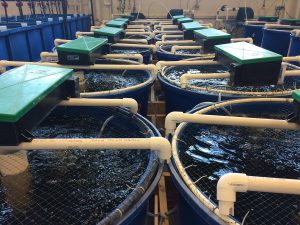Alaska Governor Dunleavy Proposes Legalizing Finfish Farming
 Alaska Governor Mike Dunleavy has introduced a bill that could mark a significant shift in the state’s approach to aquaculture by legalizing finfish farming in controlled environments. The proposed legislation, House Bill 111 (HB 111), would authorize closed-system finfish farms, ending Alaska’s longstanding ban on the practice.
Alaska Governor Mike Dunleavy has introduced a bill that could mark a significant shift in the state’s approach to aquaculture by legalizing finfish farming in controlled environments. The proposed legislation, House Bill 111 (HB 111), would authorize closed-system finfish farms, ending Alaska’s longstanding ban on the practice.
Currently, Alaska prohibits all finfish farming except for private nonprofit salmon hatcheries, many of which are operated by Indigenous communities to support wild salmon populations. This restriction was enacted in 1990 to safeguard the state’s wild fish stocks from risks such as disease, pollution, and genetic interbreeding with escaped farmed fish.
In a statement accompanying the bill’s introduction, Governor Dunleavy framed the initiative as part of a broader effort to enhance Alaska’s food security. “Alaska can join other regions of the world by raising fish that can be sold and consumed here in Alaska and be available for export,” he said. “This legislation will yield new jobs, economic growth, and a new food source for all Alaskans.”
 Maritime Injury Law Blog
Maritime Injury Law Blog







